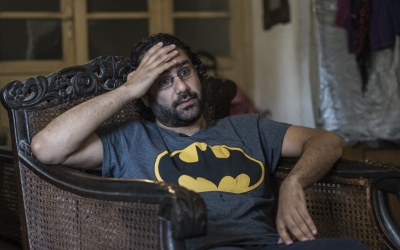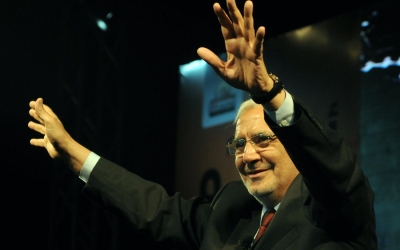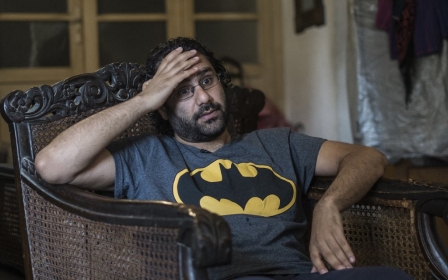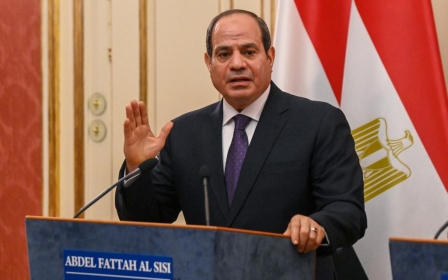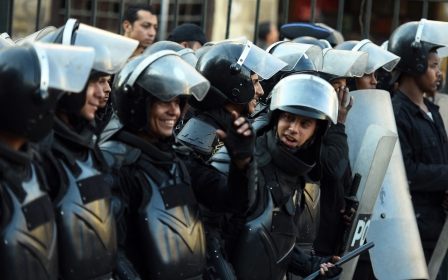Egypt: Detained former presidential candidate suffers 'barbaric' assault in prison
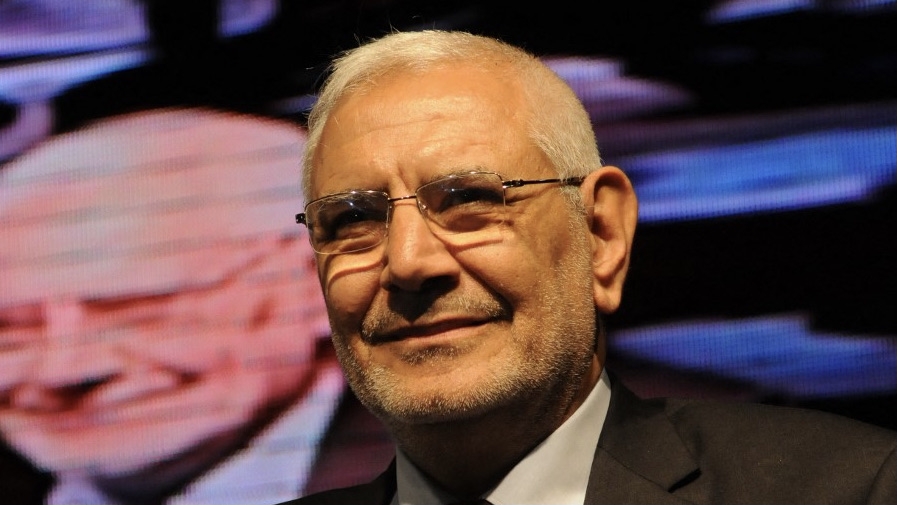
Former Egyptian presidential candidate Abdel Moneim Aboul-Fotouh has been subjected to a "barbaric" assault by guards in his cell at the notorious Tora prison complex, according to his family.
Aboul-Fotouh, 71, a former member of the Muslim Brotherhood and leader of the opposition party Strong Egypt, was allegedly attacked on 23 March at the complex’s Tora Farm Prison, the family said in a statement on Facebook.
According to a legal source, who spoke to the independent Egyptian online newspaper Mada Masr on condition of anonymity, Aboul-Fotouh, who ran for president in 2012, was preparing to file an official complaint with the public prosecutor.
As a result of the alleged assault, Aboul-Fotouh, who has had multiple heart attacks and other chronic health issues while in detention, had an episode of angina, according to the statement. Aboul-Fotouh has long complained of medical negligence since his arrest and detention in February 2018, a practice that has been widely documented in Egyptian prisons by human rights groups.
He was arrested that year on charges of spreading false news to harm national interests. He has since faced several other charges but has not been brought to trial.
In June 2021, the State Security Prosecution issued a decision to release Aboul-Fotouh, dropping some of the charges he faced since his arrest, but his detention was renewed after the prosecution filed new charges against him pending another case.
In February 2020, he was added to a new case after the expiry of his initial provisional detention.
While the maximum period of pre-trial detention is two years, according to Egyptian law, it is common in Egypt to bring renewed charges against political detainees after the expiry of the two-year period, in what rights groups have described as “recycling of existing cases” to enable indefinite detention.
'A slow death'
Aboul-Fotouh had started a protest on 29 January this year, whereby he began refusing to see visitors. The protest stemmed from what the family's statement said were “exceptional” prison conditions where "restrictions were imposed on [Aboul-Fotouh] without justification”.
The alleged assault took place after the prisoner requested a meeting with the prison warden in order to file a complaint explaining why he was refusing to receive visitors, claimed his family.
Last July, Aboul-Fotouh survived a “severe heart attack” in prison, according to his son. He claimed that the guard who was outside the cell “witnessed his suffering and as he tried to seek help for hours, to no avail".
The politician's family has repeatedly accused authorities of subjecting him to a "slow death" due to medical negligence and the tough conditions of his solitary confinement.
“After more than three years and five months in pretrial detention, in solitary confinement, in complete isolation, and a continuous deterioration in his health that threatens his life at every moment, when will he return home?” Aboul-Fotouh's son said.
Aboul-Fotouh is one of at least 60,000 political prisoners estimated to have been jailed since Egyptian President Abdel Fattah el-Sisi took power in a coup in 2013.
Sisi overthrew Mohamed Morsi, the country's first democratically elected president, who was affiliated to the Muslim Brotherhood.
Several Brotherhood leaders have died in custody in recent years, including Morsi and former MP Essam el-Erian.
Rights groups have said their deaths were most likely due to medical negligence and poor conditions in jails.
According to the Geneva-based Committee for Justice, since Sisi’s coup at least 731 people have died in custody due to denial of healthcare.
This article is available in French on Middle East Eye French edition.
Middle East Eye delivers independent and unrivalled coverage and analysis of the Middle East, North Africa and beyond. To learn more about republishing this content and the associated fees, please fill out this form. More about MEE can be found here.


